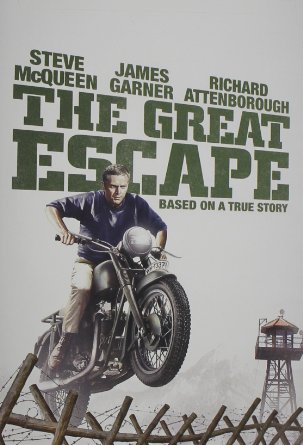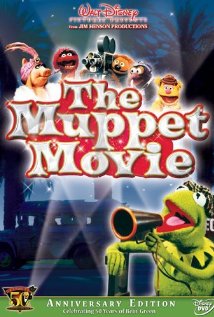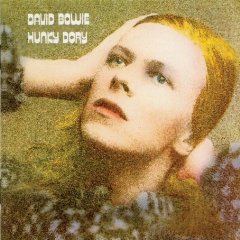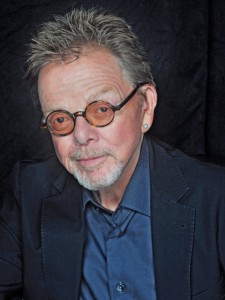Paul Williams has had an amazingly fruitful career as a singer, songwriter, actor, and author.
Williams’ songs include “We’ve Only Just Begun” and “Rainy Days and Mondays” (best known as hits for The Carpenters), “Rainbow Connection” (sung by Kermit the Frog in The Muppet Movie), “Evergreen” (sung by Barbra Streisand in A Star Is Born, a winner of an Oscar for Best Original Song), “An Old Fashioned Love Song” and “Out in the Country” (hits for Three Dog Night), “You and Me Against the World” (a hit for Helen Reddy), and “Fill Your Heart” (covered by David Bowie). More recently, he co-wrote two songs for Daft Punk’s 2013 album Random Access Memories.
His acting roles include parts in Smokey and the Bandit and Phantom of the Paradise; he co-scored the latter, and also did the music for the film Bugsy Malone and the aforementioned The Muppet Movie and A Star is Born. He also made multiple TV appearances during the 1970’s on shows such as The Tonight Show.
Williams is currently the President and Chairman of ASCAP (American Society of Composers, Authors and Publishers), and is a notable recovery advocate, co-authoring the book Gratitude and Trust.
This interview was for a preview article for his curation of The Elmer Bernstein Memorial Film Series at the Granada Theatre in Santa Barbara, with a focus on the movie The Great Escape which screened 1/26/15. It was done by phone on 1/7/15.
Jeff Moehlis: I went to the screening of To Kill a Mockingbird, where you gave the introduction. That was really interesting, and it certainly helped me to better appreciate the score, but also the movie in general. I’m looking forward to to coming back for the other movies.
Paul Williams: It’s interesting that it’s kind of a gig for me, because I’ve never done anything like this. But it’s great, because I never stopped being a fan. So I get to exercise sort of a hyper-fan approach to somebody’s work that is just so stellar, so brilliant. There’s a couple of films of his that I really, really would’ve liked to have seen in there as well. I really wanted to do The Man With the Golden Arm, but we couldn’t get a print of it for some reason. Although I think it’s a great selection.
What’s different about this next one is Jon Burlingame is going to join me on this. Jon is America’s leading authority as far as writing on film music and the like, but he’s also an avid fan and authority on Elmer Bernstein. It’ll be interesting to have someone that knows Elmer’s work to this extreme. I mean, he’s written books about Elmer. He’s done entire evenings with two hour presentations, and the courses he teaches – you know, he teaches at the Thornton School of Music at the University of Southern California. It will be exciting to have someone who really knows what they’re talking about sitting next to me. And it was great to have Richard Bellis the last time. I think it opens up the conversation, and allows me to be like an audience member. In other words, I don’t lose my card as a fan when I’m sitting up there.

JM: The next movie coming up is The Great Escape. Can you give us a little preview of your thoughts on that movie and Elmer’s contributions to it?
PW: I want to look at it again before I get into any details on the score, but first of all it’s such a macho film, and I’ve always been such a macho guy [laughs]. You know, I was friends with Charlie Bronson and his wife Jill, and I knew a couple other people in the film. There was a part of me that never stopped looking at Charlie like the guy in that picture.
What I really tried to come up with was a palette of very different films that really, really run the breadth of Elmer’s work. I think there’s something about this film, The Great Escape – this being a hardcore adventure film – that maintained humor. I think there’s humor in Elmer’s score, I think you see it. I think he has that amazing capacity to go from full-tilt dramatic to just the lightest touch. That’s what I loved about the film of To Kill a Mockingbird. There was such an elegance in his restraint. In The Great Escape, I think we begin to hear a little more of his aggression. Well, I’m not sure “aggression” is the right word – it’s not like he’s out of control.
JM: What to you is special about Elmer’s work, what makes it stand apart from the work of other composers?
PW: What a songwriter does for a film is to attempt to create an emotional bridge for the audience, for what we’re seeing. In a three and a half little piece of a song. My challenge as a lyricist is to not hit the nail the head too much, but the end result should be that the audience is going to feel the emotion that the filmmaker hopes he’s put on the screen. In a way, the songwriter in that sense is like a midwife.
I think you then take that to be the industrial-strength position of the film composer. His amazing job is to build that bridge, that emotional bridge, to the point where the audience is lifted or guided, and perhaps even nudged – a navigational nudge – towards the emotion that the filmmaker wants to inspire. But it’s so much more delicate. For a song, we want you to hear, we want you to listen to these words, hear this music, embrace these thoughts related to the film that you’re possibly just seeing, or the scene that’s going on behind the film. The composer on the other hand works subliminally. He’s behind the curtain, and I think it has never been done more eloquently and with greater diversity of genre than Elmer Bernstein. Wow, that was bold, there!
JM: Forget this Jon Burlingame guy, you know what’s going on! [both laugh]
PW: The most wonderful way to celebrate film is as a fan. I’m currently Chairman of of Board at ASCAP. There are two things that I’m intensely passionate about. One is recovery, of course. I’m almost 25 years sober. I talk about sobriety almost anytime you put me in front of a camera or a microphone. I also talk about music producers’ rights. I’m intensely passionate about that. One of the great elements of my work in that world is I get to come elbow to elbow with Quincy Jones, or Leon Russell, or a great film composer. The best part of my job is that I can let that fan live and breathe while I’m doing my work. Whether it’s working with John Williams on a tune, or some kid who’s just beginning, the fact is as a lover of movies and movie music I can maintain my fanhood. John Barry, John Williams – all the John’s.
JM: Did you ever meet or interact with Elmer Bernstein?
PW: Never. Never. And it’s funny, because I lived in Santa Barbara. You know, we go back to my sobriety, because there was a great deal of maybe-ville in my world. People will say, “Did you ever play Akron?” And I’ll say, “Maybe.” “Did you ever meet so and so?” There’s a lot of “maybe”. But Elmer Bernstein? No, I never met Elmer Bernstein. And I regret that. There are people that I wish now that I had met, even back in the 70’s, when I was getting a lot of attention as a songwriter. I wish that I had taken advantage of that and reached out and spent some time with certain people – I realize that Ira Gershwin was alive most of that time. I could have picked up the phone and had somebody put together an introduction so that I could spend time with Elmer.

JM: Of course you’ve written songs for movies. I was at the perfect age when The Muppet Movie came out, and of course “Rainbow Connection” from that movie is one of your great songs. How did you get involved with that particular song, and working on that movie?
PW: I had gone over to England to do The Muppet Show. I was a guest artist on The Muppet Show, which was filmed in England, and Jim Henson and I just hit it off beautifully. He had a project that was coming up – he know that he was going to make this film – but before that he had a project called Emmett Otter’s Jug-Band Christmas, an HBO special. It’s really interesting, very low-tech. There are marionettes where you can actually see the strings, at least in the first version that was shown. I think that they’ve been digitally removed at this point. It was a really lovely, lovely little project, and we got along so well that he asked and I wrote words and music to that.
He asked if I would come and do The Muppet Movie, and I said “Yes, but I want the music to be really eloquent, so I’d like to bring Kenny Ascher.” Kenny and I had written most of the songs for A Star Is Born – we wrote “With One More Look at You” and “The Woman in the Moon” – and we’d written a song called “You and Me Against the World” together, which was a big hit for Helen Reddy, so we’d had some success. So I actually wrote the songs for the movie – Kenny’s music and my lyrics – including “Rainbow Connection”, but all the songs in the movie. And then after the movie was over Kenny’s wife decided it was time to give birth and I wrote one of the the songs myself – it’s one of a handful of songs I’ve actually scored.
I still love writing for movies. There’s a movie that’s just out now called The Book of Life that I’ve written two original songs for, Gustavo Santaolalla and I. Gustavo and I are also writing the songs for Pan’s Labyrinth, the stage version of that movie. I’m up to my ears in it, and excited, and loving my life. I’m almost 25 years sober, and the big new thing for me is I have a book called Gratitude and Trust, which is a concept that recovery is not just for addicts. I wrote it with a Santa Barbara native named Tracey Jackson. She’s a screenwriter. We actually just spent an hour talking to Oprah about the book, we did the Today Show, we’re going to do some more television. At 74, my creative energies are as great as they’ve ever been, and I want another 20 productive years.
JM: What advice would you give to an aspiring musician or songwriter?
PW: Oh, that’s an easy one for me. I always say there’s one word that I would put on the mirror when you get up in the mirror and look at it: authenticity.

I mean, I wanted to be David Bowie. I couldn’t be David Bowie – the job was already taken. I didn’t even think about David Bowie recording one of my songs, but I knew that that’s where I wanted to go, and it just wasn’t who I was. So I’d write these emotional love songs – what I call co-dependent anthems. One of the first songs I wrote was a song called “Fill Your Heart”, that Tiny Tim recorded. God bless Tiny Tim – it was the B-side of “Tiptoe Through the Tulips”, and was a big record and all, but it wasn’t where I wanted the song to go. I wanted to write for David Bowie, that world, the rock and roll world. Years later, the first outside song that David Bowie ever recorded, on his Hunky Dory album, was “Fill Your Heart”.
To a young writer, I would say to the young composer, be authentic. Be yourself. If you can write honestly, whether it’s about the love you feel for someone, the fear you feel around something, the insecurity – whatever is going on in your life – and if you can write accurately and honestly about it, I would almost guarantee you that there are people out there in the world that feel the same way. And it’s what we have in common, not what’s different about you or I, that makes something a success. That’s why people relate to something emotionally, because they feel it, too. So authenticity – be yourself.


Discussion
No comments for “Interview: Paul Williams”